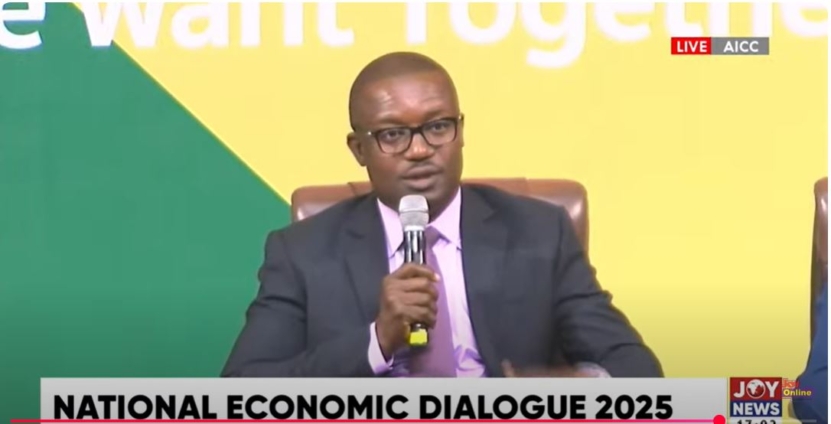Energy Minister John Jinapor has revealed that Ghana’s energy sector is grappling with outstanding liabilities of approximately GH₵80 billion, with the debt continuing to rise.
Speaking during Day 2 of the National Economic Dialogue, the minister warned that restoring the sector to stability would require clearing this massive debt burden.
“Today, the outstanding liabilities stand at about GH₵80 billion, and it keeps increasing. If we were to fully revive the energy sector, we would need to flush out this debt. Clearly, this situation is unsustainable,” he stated on Tuesday, March 4.
Beyond the existing liabilities, Mr Jinapor highlighted an even more concerning issue—the sector's monthly financial shortfall. According to him, “Our total bill, especially in the power sector, is about $170 million per month, but collections are less than $100 million. This means we are accumulating an additional $70 million in liabilities every month."
Mr Jinapor highlighted inefficiencies within the energy sector, citing financial indiscipline as a major concern. He noted that in 2023, the Public Utilities Regulatory Commission (PURC) approved $200 million as a capital expenditure cap for the Electricity Company of Ghana (ECG), but ECG ended up incurring $700 million, exceeding the approved amount by $500 million.
This excess spending, he explained, was not factored into the tariff structure, worsening the sector’s financial crisis.
The minister further emphasised the need for private sector involvement in managing the energy sector, warning that failure to do so could lead to its collapse.
He disclosed that some power producers have already shut down their plants due to non-payment of their bills, stressing that tough decisions must be made to prevent a total breakdown.
Mr Jinapor also called for an urgent transition from liquid fuel to gas for power generation, arguing that Ghana has stranded gas that is not being utilized, while the country continues to spend heavily on liquid fuel.
He revealed that the cost of liquid fuel this year alone is projected to reach $1 billion, whereas half of that amount could build a gas processing plant that would save the country $600 million annually. He maintained that constructing the plant is non-negotiable, as it would not only cut costs but also reduce corruption and waste in the sector.
Latest Stories
-
Youth group urge Ghana Water Company to commission Damongo Water Project, condemns partisan delays
9 minutes -
Let’s be global leaders: GEXIM boss, Sylvester Mensah, rallies Ghanaian exporters at Horticulture Expo 2025
20 minutes -
MahamaCares: Senior management of Ghana EXIM Bank contributes GH₵450,000 to the Fund
24 minutes -
Has the BECE lost its relevance?
31 minutes -
Missed by Minutes: passenger recounts emotional escape after deadly Air India crash in Ahmedabad
39 minutes -
UN names first ocean restoration flagships, aims to revive marine ecosystems across 3 continents
42 minutes -
Zoomlion contract: People should be jailed, but there’s a lack of political will – Manasseh Azure
2 hours -
IAEA board declares Iran is in nuclear breach
3 hours -
Teenage mother returns to write BECE after giving birth mid-exam
3 hours -
Inna’s Kitchen offers free bakery training to vulnerable women in Kumasi
3 hours -
Qatar Ambassador pays courtesy call on Education Minister
3 hours -
CTVET head advocates for competency-based training for TVET institutions
4 hours -
IMF welcomes GH¢1 fuel levy
4 hours -
Your future is too bright to cheat – Asunafo North MP urges BECE candidates to choose integrity
5 hours -
Daily insight for CEOs: Governance Agility – Rethinking oversight for rapid change
5 hours

